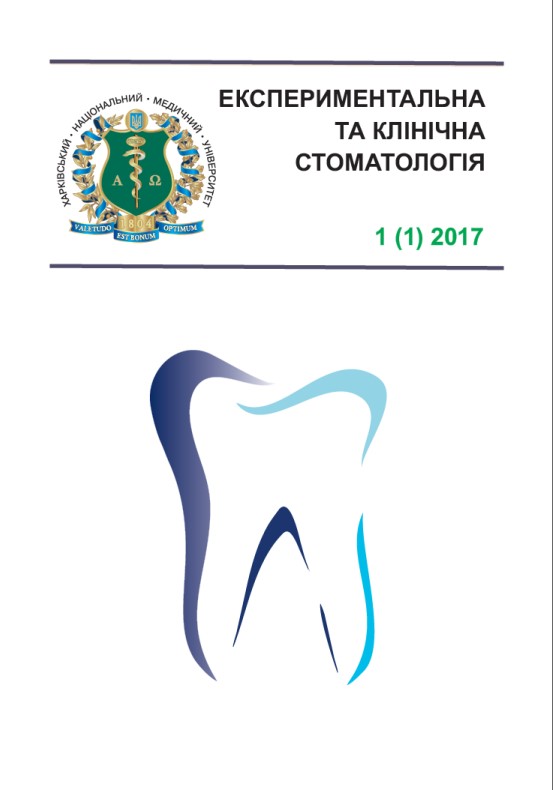Abstract
Antitumoral therapy is toxic both for the whole body, and for the oral mucosa.
For patients with breast cancer (BC) this problem is important because of the high incidence rate and chemotherapy tropism to the mucosa of the gastrointestinal tract, even in conditions of standard treatment protocols.
We have previously shown that the incidence of this disease had reached 90% in breast cancer patients during cycles of adjuvant chemotherapy (CTx). It could bring significant discomfort to the patients; reduce the effectiveness of treatment, being a dose limiter, often leading to the deterioration of patients and discontinuation of special treatment [3–7].
One of the most significant side effects of the up-to-date anticancer therapy is an inflammation of the mucous membrane – chemotherapy-associated mucositis.
It is known that a microbial factor – namely, the state of oral dysbiosis, – plays a crucial role in the pathogenesis of almost all dental diseases.
For an impartial assessment of the state of oral cavity a study was conducted in unstimulated oral fluid of 26 breast cancer patients stage T1N0M0–T2N1M0 (who have received combined treatment – mastectomy and postoperative radiotherapy) of biochemical markers – urease activity [10] (an indicator of microbial seeding) and lysozyme activity [10] (an indicator of nonspecific immunity) before the start of CTx and before the II, IV and VI cycles.
The conducted study of oral fluid in BC patients before the start of chemotherapy revealed that urease activity has increased in 7.1 times (p<0,05) in all BC patients long before the start of CTx, indicating a significant increase of microbial seeding of the mouth. There is a slight decrease in activity of urease against the background of CTx; before the VI CTx cycle its figures exceed the rate in 5.5 times.
The level of lysozyme in oral fluid was 2 times lower than normal. Such low levels of lysozyme were maintained at all stages of CTx and even showed some tendency to decline further before the IV and VI CTx cycles.
The difference between the benchmarks and the norm is explained by the preliminary conducted surgery and radiation therapy of BC patients at earlier stages of treatment.
Stage estimation of oral dysbiosis in these patients showed its growth in 13.3 times.
Despite the decrease in activity of urease and lysozyme before the VI CTx cycle, compared to the original data, the stage of dysbiosis is unchanged: 13.3 units at the start and 14 units before the VI cycle of CTx.
The obtained data show a significant increase in microbial seeding of the oral cavity and a reduction of the bactericidal properties of oral fluid in patients with breast cancer against the background of adjuvant CTx. This dictates the necessity to develop a pathogenesis-conditioned set of preventive measures for these serious complications.
Keywords: breast cancer, chemotherapy, oral fluid, enzymes, lysozyme, urease, dysbiosis.
References
Gershanovich M.L. Zheludochno-kishechnyye oslozhneniya khimioterapii [Elektronnyy resurs] / M.L. Gershanovich // Materialy III Rossiyskoy onkologicheskoy konferentsii. – Sankt-Peterburg,1999. – URL: http:// www.rosoncoweb.ru/library/congress/ru/03/17.php (date of the application: 21 Jun 2013). [In Russian].
Miyamoto Kertis T. Vozmozhno li snizit' uroven' zabolevayemosti i tyazhesti oral'nogo mukozita / Kertis T. Miyamoto // Touch Briefings. – Philadelphia, USA, 2007. – P. 18–21. [In Russian, translation].
Sukhina I. S. Osobennosti sostoyaniya slizistoy obolochki rotovoy polosti i gub u patsiyentok s rakom molochnoy zhelezy na etapakh ad"yuvantnoy polikhimioterapii / I. S. Sukhina, I. I. Sokolova // Vísnik problem bíologíí̈ ta meditsini. – 2012. – Iss. 2, vol. 2 (93). – P. 251–255.
Teletayeva G. M. Profilaktika i lecheniye zheludochno-kishechnykh oslozhneniy lekarstvennoy terapii (toshnota i rvota, mukozity, diareya) / G. M. Teletayeva // Prakticheskaya onkologiya. – 2009 – Vol. 10, No. 3. – P. 162–164. [In Russian].
Epstein J. В. Oropharyngeal mucositis in cancer therapy. Review of pathogenesis, diagnosis, and management / J. В. Epstein, M. M. Schubert // Oncology (Huntingt). – 2003. – Vol. 17, No. 12. – P. 1767–1779.
Keefe D. M. Intestinal mucositis: mechanisms and management / D. M. Keefe // Current opinion in oncology. – 2007. – Vol. 19. – P. 323–327.
Lalla R. V. Management of oral mucositis in patients who have cancer / R. V. Lalla, S. T. Sonis, D. E. Peterson // Dent. Clin. North Am. – 2008. – Vol. 52, No. 1. – P. 61–77.

